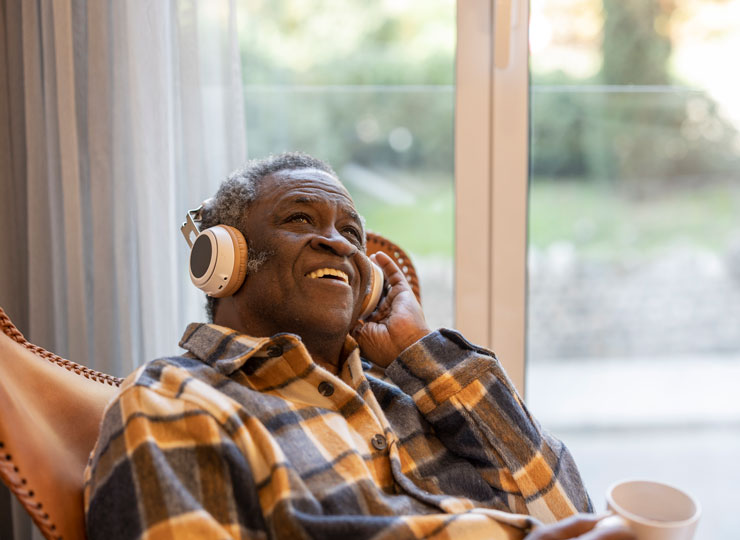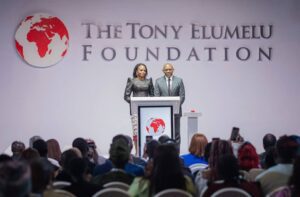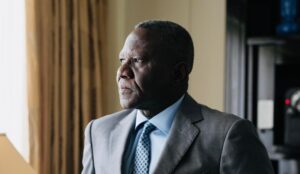
Source: Ghanaija
In a small village in Nigeria, there lived a young girl named Ada. From a young age, Ada showed a remarkable talent for playing the mbira, a traditional African musical instrument. The sweet, soothing sounds of the mbira often drew the villagers to Ada’s home, where they would sit and listen to her play for hours. It wasn’t long before people began to notice that Ada’s music seemed to have a calming effect on those who listened.
One day, Ada’s mother, Ifeoma, fell seriously ill. She was bedridden, with a high fever and severe pain. Despite the best efforts of the local healer, Ifeoma’s condition did not improve. Desperate, Ada decided to play her mbira for her mother. As the melodious notes filled the room, Ifeoma’s breathing began to steady, and a peaceful expression crossed her face. Over the next few days, Ada continued to play, and remarkably, Ifeoma’s health improved. The villagers were amazed and began to believe in the healing powers of Ada’s music.
Several kilometers away, in Ghana, Kwame, a renowned drummer, had a similar experience. Kwame was known for his skill with the djembe, and his drumming was a central part of community gatherings. One evening, during a festival, a young boy named Kofi, who had been suffering from chronic anxiety, approached Kwame. The boy’s parents mentioned that Kofi had not slept well in months and was constantly restless. Kwame invited Kofi to sit with him during his drumming sessions. To everyone’s surprise, Kofi’s anxiety lessened significantly, and he began to sleep peacefully. The community was astonished and began to wonder if Kwame’s drumming held therapeutic powers.
In Kenya, a similar tale unfolded. A woman named Amina, a talented singer, noticed that her songs brought comfort to people during difficult times. One of her neighbors, Juma, was suffering from depression after losing his job. Amina often sang near Juma’s home, and her gentle voice seemed to lift his spirits. Over time, Juma regained his confidence and found new employment. The villagers speculated that Amina’s singing had played a role in his recovery.
These stories from Nigeria, Ghana, and Kenya raised an important question: Do music and its healing powers have a basis in fact, or are they merely fiction?
To explore this, let’s consider the scientific perspective. Research has shown that music can have a profound impact on the brain. Studies indicate that listening to music can release dopamine, a neurotransmitter associated with pleasure and reward. This release of dopamine can improve mood and reduce stress. Additionally, music therapy has been used in various clinical settings to help patients manage pain, anxiety, and depression.
In South Africa, Dr. Thandiwe, a neurologist at a leading hospital in Johannesburg, conducted a study on the effects of music on patients undergoing surgery. She found that patients who listened to calming music before and after their operations experienced less pain and required fewer pain medications than those who did not. Dr. Thandiwe’s research provided empirical evidence supporting the idea that music has therapeutic benefits.
However, the healing power of music is not limited to physical health. In Uganda, a program was initiated to use music therapy for children affected by war and trauma. The program, led by a musician named Moses, focused on helping children express their emotions through song and dance. Many of these children had witnessed horrific events, and traditional therapy methods had limited success. Through music therapy, the children found a way to process their experiences and begin healing emotionally. Moses observed significant improvements in the children’s mental health, reinforcing the idea that music can be a powerful tool for emotional healing.
Despite these compelling stories and scientific findings, some skeptics argue that the perceived healing effects of music are simply a result of placebo. They contend that the positive outcomes observed are due to individuals’ belief in the power of music rather than any intrinsic therapeutic properties.
In Tanzania, a rigorous study was conducted to address this skepticism. The study involved two groups of participants with chronic pain. One group received music therapy, while the other group was given a placebo treatment. The results were telling: the music therapy group reported significant reductions in pain levels and improvements in overall well-being compared to the placebo group. This study added weight to the argument that music’s healing powers are more than just a placebo effect.
In conclusion, while personal anecdotes and cultural beliefs have long suggested that music holds healing properties, scientific research has increasingly supported these claims. The experiences of individuals like Ada, Kwame, and Amina, coupled with the empirical studies conducted by professionals like Dr. Thandiwe and the music therapy programs in Uganda and Tanzania, provide a compelling case for the therapeutic benefits of music.
Whether it is through the calming notes of an mbira, the rhythmic beats of a djembe, or the soothing voice of a singer, music has the power to touch our lives in profound ways. While further research is needed to fully understand the mechanisms behind music’s healing effects, it is clear that music can play a significant role in improving both physical and emotional well-being. Therefore, the healing powers of music, though sometimes viewed with skepticism, appear to be grounded in both cultural wisdom and scientific fact.








